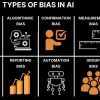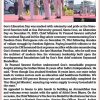Goa is abuzz with excitement as vintage bike and car owners, users, collectors and fans are decking […]

DAWNING OF THE DIGITAL AGE!
INFOCUS, Jan 30- Feb 05, 2021 January 29, 2021WEDDING: In Goa even getting married has gone digital, as during the first stage of submitting your documents, you do not have to go to the Registrar’s office. You only need to upload the information on the Marriage Registrar’s website and go there physically only to get legally married
By Arvind Pinto
The digital age which is spreading to every sector will impact all aspects of life including the way we work, the way we travel and how business is transacted. It will also impact tourism in a major way…
SEVERAL decades ago the Beatles sang “This is the dawning of the age of Aquarius…,” heralding a new, uncertain age that the world would be entering upon. To the people of the then world still in the age of paper, pencil or pen, with the only means of communication the analogue telephone, the postal letter and at best the telegram, these words did not make sense. But today in the second decade of the 21st century, we realize that we have entered into the digital age – the age of technology coupled with the speed of light. When all data and all of our recorded movements and even life will be digitalized. Are we aware of this: Yes, to a few, but NO to many of us. Whether we believe it or no, India has already entered into the digital age.
What is this digital age all about? This is the age of information, where cutting edge technology makes it possible for the transmission and storage of all types of data – that would be accessible to everyone at the speed of lightening and the click of a button. Gone are the days when information and knowledge was the privy of the select few who considered themselves keepers of their little domains of knowledge, often using their privileged position for profit.
In today’s digital world knowledge is out in the open for everyone to use and to profit from. How did this digital age begin, what are its contours, what are the changes it would bring to our daily lives, these are some questions worth examining.
The internet revolution, especially with the public introduction of the personal computer in the 1970’s, enabled the transfer of information almost at the click of a button. However, at that time, computers were not available to all and the transmission of data was slow and erratic. With the acceleration of digital speed, the introduction of 2G, then 3G and now 4G if not moving into 5G speed in transmission, technology has been able to move trillion pieces of data not only from computers but across the globe in a fraction of seconds.
This speed of transmission allows anyone to access any information from any part of the world and has brought the world into this new digital age. Of course, for the majority of Indians this is still a pipe dream. But this digital age has brought information to our fingertips. At the click of a button on our cell phone, the ordinary Indian is able to obtain information in his own language on any subject that she wishes to be informed about. With the advent of 4G and 5G the speed at which information can be obtained and downloaded will only depend upon the amount of memory that your cell phone or computer has. Information is available in real time!
JOBS & INCOME DISTRIBUTION
THE information age has affected the world’s workforce in a significant manner. This can at the rudimentary level be seen, say for example in any bank in Goa. Gone are the days when you went to a Bank, the clerk opened a ledger to tell you your balance. Today all that the bank staff has to do, sitting face to face with a computer and with a click of a button, they would tell you your balance and the amount that you could withdraw.
In fact the scene has changed for the better. You need not even visit your bank. From the comfort of your home you may access your bank account, transfer money to a third party. We do not even have to visit a bank to do a transaction banking in the digital age, you can do transactions from your bank account with the tips of your mobile phone.
In the earlier days, banks were required to open branches, have real estate, hire personnel to man these branches and incur expenditure on this. In the digital age coming in there will be no need to have branches, or so much personnel to man these offices. For much of the banking operations will be digital mode through emails and phone.
Like banks, many of the service sectors too would not have to maintain offices and locations to provide to clientele needs. Service sector personnel may work from anywhere, provided they have their laptops and good connectivity. There is already falling demand for commercial space in our urban centers since most services can be executed even from one’s home or even while travelling.
With people working from home, there would be the consequent reduction in vehicular traffic, less congestion on our roads. The peculiar phenomenon in Goa, of people travelling into the urban centers like Panjim, Margoa or Ponda, would reduce since many of these people would be able to work from their villages instead of coming into the city.
GOVERNMENT SERVICES
THE digital age will increasingly lead to the empowerment of the people. One of the good measures that the Goan government has undertaken is to digitalize land records. There is no little need for travelling to the Land Record Department, greasing the palms of anyone to obtain the necessary documents or title of your land. This is available at the click of a button. Similarly, the long lines for the payment of panchayat tax or property tax have also disappeared, since this can be done from the confines of one’s house. So is the case of electricity bills
AND ENTERTAINMENT
IN the days gone by the movies were the major source of entertainment in Goan cities, as the theater was in our villages. Today cinema halls are losing their popularity – when people can watch movies from their laptops or mobiles in the comfort of their homes. Entertainment courtesy digital technology is growing phenomenally.
Also take tourism. Goa to a large extent is dependent upon tourism. In an increasingly digital age will Goa be able to attract tourists who come to enjoy its natural sun, sea and sand charms? Goa has already seen a drastic decrease in foreign tourists, but this drop has been filled with the increasing number of Indian tourists who come to Goa.
Goa will have to develop its infrastructure, especially in the telecommunication network, to enable local tourists who come to Goa to be able to connect with their work place. With the work from home concept that this digital age has brought about, many of the tourists coming to Goa to enjoy the balmy environment can from within the confines of their resorts continue to work for their employers.
Tourism promotion in Goa could sell the idea of coming to Goa and working from home away from home, with the added comfort of having an evening of fun in convivial company. However, to make this a reality, there is a need to develop connectivity to ensure that those coming to Goa will be able to connect with their work places with easy and without frustration.
COVID-19’S GOOD EFFECT!
WHILE we all decry the phenomenon of the Covid-19 contagion and its effect on our way of life and living, one of the beneficial effects was that it accelerated the dawn of our digital age and its spread among the populace. Today virtual meetings, both in government and the judiciary, have become the norm. The concept of work from home is the new corporate mantra. E-auctions and E-tendering are now standing operating procedures for all major contracts. Education at primary, secondary and university levels have also turned virtual. Even religion, daily and weekly masses for the faithful and puja for the devout, are on U-tube channels.
Yes, the digital age has not fully dawned upon us. But it is coming in and will be here to stay. With every age, there are some who gain and others who lose. Certain sectors would go out of business, while new sectors would come into existence. Digital Goa would be an ideal paradise for those of us who can visualize, anticipate and be prepared for the future that is to come!















